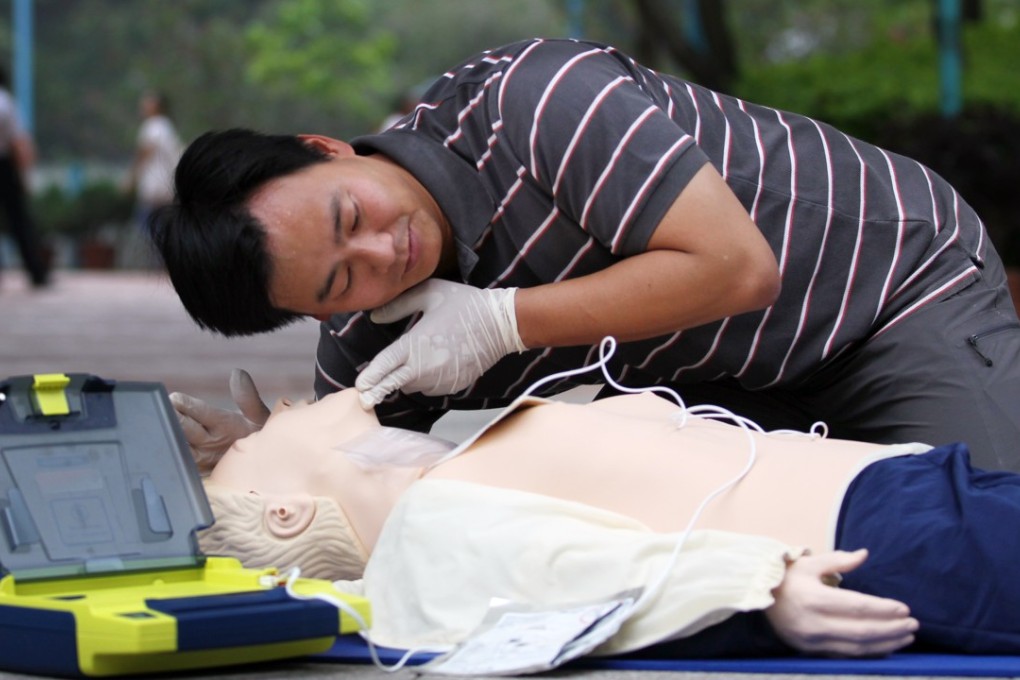The Singapore app for heart attack victims that Hong Kong isn’t ready for: why myResponder would flounder in city lacking CPR knowledge
A lack of training, data and civic-mindedness would have to be overcome for such an app to be effective, says a Hong Kong heart specialist about a city in which fewer than one in 44 heart attack victims survive

Heart attack victims’ chances of survival depend on how quickly their heart can be restarted.
Just ask the family of Dickson Yu Tak-shing, whose life, sports officials say, was probably saved by a teammate, a nurse who knew how to use a heart defibrillator, when the former Hong Kong swimmer suffered a heart attack while playing soccer in the city two weeks ago. A defibrillator delivers an electric shock to restart the heart.
“The worst is over,” the mother of the 28-year-old said after Yu regained consciousness two days after collapsing.
If a victim’s heart is not restarted within three to five minutes, a lack of blood flow to the brain condemns them to almost certain death; those who survive will likely suffer irreversible brain damage. To increase survival rates, Singapore launched a mobile phone app in 2015 that alerts citizens with training in resuscitation to help heart attack victims nearby.
Could a similar app increase survival rates in Hong Kong, where more than 97 per cent of people who have heart attacks die if they are not already in hospital?
A lack of training, data and civic-mindedness would first have to be overcome, says Andy Chan Wai-kwong, a heart specialist and honorary secretary of the Hong Kong College of Cardiology to which all heart doctors belong. He spoke in a personal capacity.